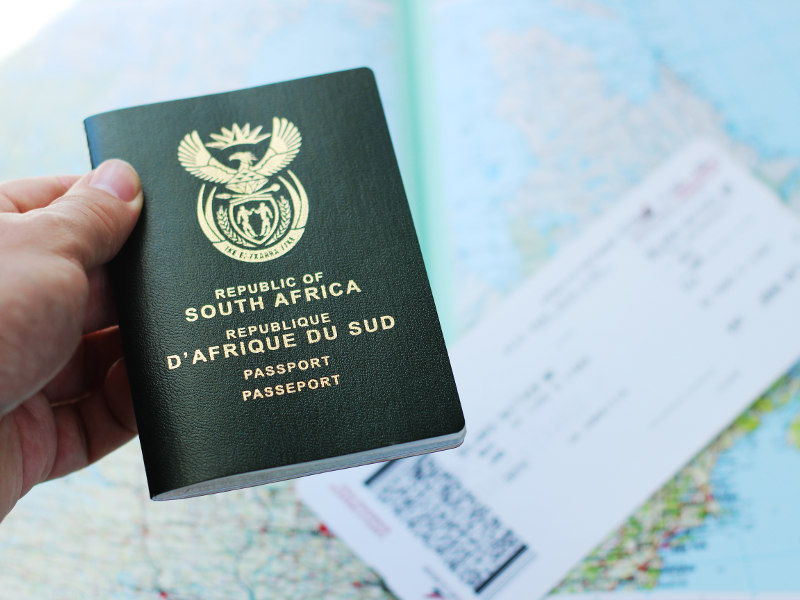Ever dreamt of traversing the African continent, soaking in its diverse cultures and breathtaking landscapes, but found the logistics and costs daunting? The concept of the "Africa Pass," encompassing both travel passes and historical instruments of control, offers a compelling lens through which to explore the continent's complexities and opportunities.
Navigating the vastness of Africa can indeed be challenging. For those seeking to explore Southern Africa, the Oneworld's Visit Africa Pass emerges as a strong contender. It particularly caters to travelers keen on focusing on key destinations like Johannesburg, Cape Town, and the majestic Victoria Falls. This pass simplifies travel within the region, offering a streamlined way to experience its highlights. Alternatively, if your ambition extends to a broader range of African destinations but time is a constraint, and the prospect of individual airline tickets feels financially overwhelming, the Go Africa Pass, offered by the Sky Team airline alliance, might be the ideal solution. These passes offer a structured approach to multi-destination travel, but it is important to recognize that travel is more than just convenience it is about creating meaningful memories and experiences.
| Concept | Africa Pass: Travel & Historical Significance |
| Travel Passes | Oneworld Visit Africa Pass, SkyTeam Go Africa Pass |
| Destinations | Johannesburg, Cape Town, Victoria Falls, Diverse African countries |
| Historical Context | Pass Laws, Apartheid in South Africa |
| Related Link | Official South Africa Tourism Website |
South Africa, a nation brimming with richness and diversity, presents an alluring tapestry of experiences. From the iconic Table Mountain and the dramatic Drakensberg mountain range to the immense variety of wildlife thriving in their natural habitats, the country offers an unforgettable journey. Add to that the allure of stargazing under the vast African sky, indulging in vineyard tours through world-renowned wine regions, experiencing the thrill of deep-sea fishing, and engaging in exhilarating adventure sports, and you have a destination that caters to every type of traveler. Yet, beneath the surface of this modern paradise lies a history deeply intertwined with the concept of "passes," a stark reminder of a painful past.
- Power Up Superhero Pose Guide From Art To Confidence
- Chico Benymon From Half Half Star To Fashion Designer More
Delving into the historical context, it's crucial to acknowledge the deeply entrenched system of pass laws that plagued South Africa for centuries. These laws, far removed from facilitating travel, served as instruments of control and oppression. In the 19th century, new pass laws were enacted to ensure a readily available and compliant workforce for the burgeoning gold and diamond mines. The intent was clear: to restrict the movement of African people, confining them to specific areas and ensuring a steady supply of cheap labor for white farmers and industrialists. This system reached its zenith with the formal establishment of Apartheid in 1948.
Apartheid, a policy that defined South Africa throughout much of the 20th century, was a system of institutionalized racial segregation and discrimination against the nonwhite majority. It sanctioned segregation in all aspects of life, from housing and education to employment and political participation. The pass laws were a cornerstone of this oppressive regime, dictating where black Africans could live, work, and travel. In 1952, the government implemented an even more stringent law, requiring all African males over the age of 16 to carry a reference book a direct replacement of the previous passbook containing personal information, employment history, and permits to be in certain areas. These books became symbols of oppression, representing the denial of basic human rights and freedoms.
The pass laws in the Transvaal, or South African Republic, were specifically designed to force black people to settle in designated areas, ensuring a consistent labor pool for white farmers. This Boer republic, established in September 1853 and encompassing the area north of the Vaal River (later known as the Transvaal), implemented policies that directly curtailed the freedom of movement for black Africans. The legacy of these laws continues to resonate in contemporary South Africa, underscoring the importance of understanding history to address present-day challenges.
- Explore Amateur Photography Mature Women A Visual Journey
- Wide Opening Crossword Clue Answers Solution La Times
It is vital to recognize that the concept of "Africa Pass" carries a dual meaning. While contemporary travel passes offer opportunities for exploration and cultural immersion, the historical pass laws represent a period of profound injustice and suffering. To truly appreciate the beauty and potential of the African continent, it is essential to acknowledge and learn from its past.
Beyond South Africa, other African nations offer unique experiences and face their own set of challenges and opportunities. Zambia, for instance, shares borders with a remarkable eight countries: Botswana, Zimbabwe, the Democratic Republic of Congo, Tanzania, Malawi, Mozambique, Namibia, and Angola. This strategic location makes it a potential hub for regional tourism and trade. Similarly, Zimbabwe, bordered by South Africa, Botswana, Mozambique, and Zambia, boasts a rich cultural heritage and stunning natural attractions, including Great Zimbabwe, meaning "great houses of stone," and the world-renowned Victoria Falls, the largest waterfall on the planet. Home to roughly 16 million inhabitants, with Harare as its capital city, Zimbabwe presents a complex blend of history, culture, and natural beauty.
Namibia, one of Africa's youngest countries, located in the southwestern part of the continent, is largely malaria-free, making it an appealing destination for health-conscious travelers. Its name is derived from the Namib Desert, the oldest desert in the world, and it is the second least densely populated country, offering vast expanses of untouched wilderness. From its unique desert landscapes to its diverse wildlife, Namibia offers a distinctly different African experience.
The Sani Pass, a legendary mountain pass in South Africa, remains an iconic landmark, a testament to the country's rugged beauty and adventurous spirit. The only factor that could potentially diminish its iconic status is the possibility of it being tarred. While some argue that paving the pass would detract from its raw, untamed character, others believe it would open it up to a broader audience, boosting local tourism and benefiting the region economically. Regardless of its future, the Sani Pass stands as a symbol of South Africa's dramatic landscapes and the enduring allure of adventure.
When planning a trip to Africa, understanding the requirements for temporary permits and visas is crucial. Typically, these requirements include an original identification document and a copy for adults, or an original passport and a copy for adults, an original birth certificate and a copy for minors, two passport-size photographs, and the prescribed fee. It's always recommended to check with the specific country's immigration services for the most up-to-date and accurate information. For instance, travelers can often find information on new applications through the directorate of immigration services.
In today's digital age, travel has become increasingly convenient, with options like printing your own boarding pass or receiving a mobile boarding pass directly on your phone. These innovations streamline the travel process, allowing for a smoother and more efficient journey. However, it's important to remember that travel is more than just convenience; it's about connecting with new cultures, learning about different perspectives, and creating lasting memories.
Discovering Southern Africa with companies like AfricaPass offers travelers competitively priced, creative, and tailor-made itineraries, without compromising on quality. These services aim to provide a "one-stop shop" for exploring the region's fascinating rich cultural heritage, natural beauty, and abundant wildlife, offering the potential for a truly unforgettable holiday. By offering personalized experiences and expert guidance, these companies aim to make African travel accessible and enriching.
As we reflect on the multifaceted nature of the "Africa Pass," we are reminded of the importance of understanding history, embracing diversity, and promoting responsible tourism. By acknowledging the past, celebrating the present, and working towards a more equitable future, we can unlock the full potential of the African continent and create truly transformative travel experiences. This editorial page serves as a platform to present diverse perspectives and ideas, contributing to a broader understanding of the challenges and opportunities facing African Americans and people of African ancestry around the world, rooted in their historical experiences.
- Lori Greiner Photos Hot Looks Images More 2024 Update
- Unleash The Fun Big Ass Porn Anal Adventures Await


